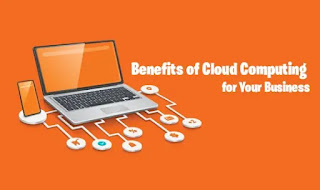1. Understanding Cloud Computing and Its Benefits Cloud computing has revolutionized the way we store, access, and process data. In this a...
1. Understanding Cloud Computing and Its Benefits
Cloud computing has revolutionized
the way we store, access, and process data. In this article, we will explain
what cloud computing is, its benefits, and the different types of cloud
services available. We will also discuss the challenges and concerns associated
with cloud computing, and how to ensure data security in the cloud.
2.
The Rise of Artificial Intelligence and
Machine Learning
Artificial intelligence (AI) and
machine learning (ML) are rapidly transforming various industries, including
healthcare, finance, and transportation. In this article, we will explain what
AI and ML are, their applications, and the different types of AI algorithms. We
will also discuss the ethical and societal implications of AI, and how to address
them.
3.
Cybersecurity: Protecting Your Online
Presence
As we become increasingly reliant
on technology, the threat of cyber-attacks continues to rise. In this article,
we will provide tips and best practices for securing your online presence,
including the use of strong passwords, two-factor authentication, and virtual
private networks (VPNs). We will also discuss the different types of
cyber-attacks and how to identify them.
4.
Introduction to Blockchain Technology
Blockchain technology has gained
widespread attention in recent years, particularly with the rise of
cryptocurrencies like Bitcoin. In this article, we will explain what blockchain
technology is, how it works, and its potential applications beyond cryptocurrencies.
We will also discuss the challenges and concerns associated with blockchain,
and how to address them.
5.
The Importance of Data Analytics in
Business
Data analytics has become a
critical aspect of business decision-making, helping organizations to gain
valuable insights from their data. In this article, we will explain what data
analytics is, its different types, and the tools and techniques used in data
analysis. We will also discuss the benefits of data analytics for businesses,
and how to implement it effectively.
6.
Understanding Quantum Computing and Its
Potential
Quantum computing is a relatively
new field that has the potential to revolutionize computing power and speed. In
this article, we will explain what quantum computing is, its differences from
classical computing, and its potential applications in various industries. We
will also discuss the current state of quantum computing research and
development, and what the future may hold for this technology.
7.
The Future of Work: Remote Collaboration
and Productivity
The COVID-19 pandemic has
accelerated the shift towards remote work and collaboration, with many
companies adopting digital tools and platforms to facilitate remote work. In
this article, we will discuss the benefits and challenges of remote work, and
how to maintain productivity and collaboration in a virtual environment. We
will also discuss the future of work and what it may look like in the years to
come.
8.
Introduction to Programming Languages
Programming languages are
essential tools for software development, and there are many different
languages available, each with its strengths and weaknesses. In this article,
we will introduce some of the most popular programming languages, including
Python, Java, and C++. We will explain the differences between these languages
and their typical applications and provide tips for learning and mastering
them.
9.
The Role of Big Data in Marketing
Big data has transformed the way
companies approach marketing, enabling them to collect and analyze vast amounts
of customer data to gain insights into their behavior and preferences. In this
article, we will explain what big data is, its applications in marketing, and
the tools and techniques used in data analysis. We will also discuss the
challenges and concerns associated with big data, and how to address them.
10.
Internet of Things (IoT) and Smart Homes
The Internet of Things (IoT)
refers to the network of connected devices and objects that are capable of
collecting and exchanging data. In this article, we will focus on the
applications of IoT in smart homes, including smart thermostats,

कोई टिप्पणी नहीं